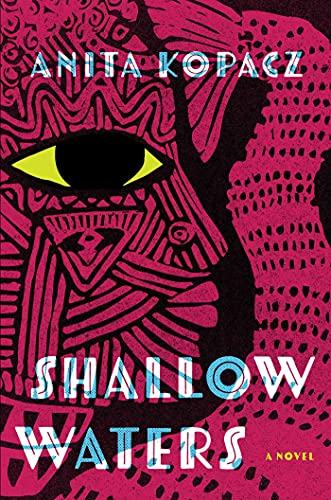Shallow Waters
This epic incorporates the Yoruba sea goddess Yemaya (also known as the Mother of Fishes and Mother of Africa), with the Middle Passage and Underground Railroad from the perspective of Yemaya herself. When the story begins, she’s a mermaid who’s lost her parents and falls in love with the fisherman Obatala. She manages to accompany the slave ship where Obatala and his fellow villagers sail into captivity.
Yemaya’s supernatural powers allow her to transform herself into human form and learn the languages and ways of the people she encounters in her search for Obatala. Not understanding why Africans know her name and venerate her, Yemaya’s life borders between human and magical. She meets enslaved and free Africans, slave owners and slave hunters, Natives who’ve escaped the Trail of Tears into small encampments, and Quakers who aid escaped slaves on their road to freedom. Ralph Waldo Emerson makes a cameo appearance, his transcendental philosophy resembling the Yoruba belief in the Great Spirit.
Magical stories require a willing suspension of disbelief, and it’s not difficult with this novel’s momentum. Stories such as that of the Flying Africans, recounted here (and significant in Toni Morrison’s Song of Solomon), show how enslaved Africans have the power to escape through their imaginations. We see a mermaid goddess, now human, suffering along with those enslaved and constantly challenged. Yemaya is befriended by Africans and whites who honor her healing powers and superhuman strength—which can cause her to be labeled a witch. If she comes in contact with water, these strengths increase even when she walks on two legs.
The book’s short chapters and present-tense format add to the narrative drive. Whether or not raised on Western religion and mythology, readers will gain fresh understanding of an African mythic realm through Yemaya’s distinctive voice.
Highly recommended.










